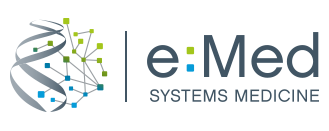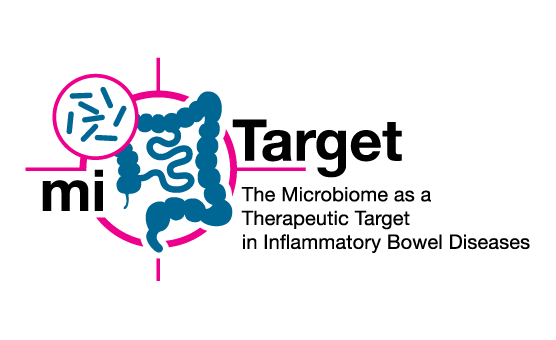
Konrad Aden
Intestinal Immunometabolism
Welcome to the Intestinal Immunometabolism Group
Our mission is to understand the interplay of metabolism and immune system in the context of mucosal inflammation and inflammatory bowel disease (IBD).
As part of an internationally renowned medical center for Inflammatory Bowel Disease (IBD), our group promotes targeted IBD diagnostics and therapy within the excellence cluster Precision Medicine in chronic Inflammation (PMI). Our working environment benefits from a technologic infrastructure of the Institute for Clinical Molecular Biology (IKMB) with its high-performance computational analysis tools, as well as direct access to patient care and clinical trials at the University Medical Center Schleswig-Holstein (UKSH). In this highly specialized working environment, we aim to translate findings from preclinical in-vitro and in-vivo models of inflammatory bowel disease into the clinical setting by employing our locally established extensive biobanks built from in-house IBD trials.
Our focus is to implement the metabolic perspective into the complex interplay of immunity in chronic inflammation. We have therefore developed array of LC-MS/MS based methods to measure amino acid metabolism (e.g. tryptophan pathway, serin-glycine metabolism) in clinically relevant biomaterials, including blood, feces and tissue. We couple these measurements with state-of-the art statistical and bioinformatics analysis. While our focus is metabolomics, we take a systems biology approach via integration of other -omics layers, made possible via our tight collaboration with other working groups (AG Rosenstiel, AG Bacher, AG Franke, AG Groussin/Poyet) within the IKMB. Our group thereby merges the stages of identification, validation and clinical implementation of novel diagnostic and therapeutic strategies for IBD patients.
Introduction of Animal & Organoid Models
In our exploration of mechanisms underlying chronic inflammation, we predominantly utilize animal models featuring genetic defects in Inflammatory Bowel Disease (IBD) risk genes—specifically, RNASH2b, TMEM173, ATG16L1, and Xbp1. Moreover, we induce acute inflammation through the DSS colitis model and perform immunohistochemistry to delve deeper into our investigations. To complement our in-vivo analyses, we employ organoids derived from respective mice, allowing us to gain molecular biological insights into the mechanisms of IBD.

Lab Mission
To dig deep into molecular mechanisms driving IBD, we employ a broad spectrum of preclincial models ranging from (primary) cell culture and models of murine/human intestinal organoids to in-vivo models of murine intestinal inflammation. Eventually, to translate findings into clinical settings, human IBD biosamples (blood, feces, mucosa) are utilized. Biomaterials are analyzed employing various techniques including mass spectrometry. We utilize targeted metabolomics (SCIEX Triple Quad 5500) and untargeted metabolomics (Orbitrap Exploris 240), but also integrate standard molecular biology techniques such as NGS, protein or FACS analysis and histologic assessments. Our group hereby sets out to translationally uncover novel diagnostic or therapeutic strategies in IBD.
Lab Vision
We aim to add a layer of immune-metabolic understanding to existing multi-omics-based disease models of IBD pathogenesis which will further contribute to decipher key features of this complex immune-mediated disorder.
Main Projects / Funding





